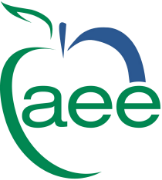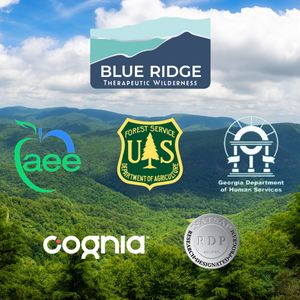Accreditation
Accredited and Licensed to Provide Safe, Effective Care
We are licensed, accredited and permitted by the following organizations:
The licensing and accreditation processes required of reputable wilderness programs is not for ill-prepared or sub-par organizations. It is not altogether uncommon for a new program to fail to meet the rigorous requirements of a licensing board or accreditation committee.
In addition to licenses and accreditations, some programs, including Blue Ridge, are also members of industry organizations such as the National Association for Therapeutic Schools and Programs (NATSAP) or the Association for Experiential Education (AEE). Our program is permitted by the National Forest Service (USFS), and holds academic accreditation from Cognia as a Special Program. Each of these organizations has its own set of requirements for the initial licensing, accreditation, permit, & membership process, as well as baseline expectations to maintain them. Below is an explanation of each:

The Association for Experiential Education
Accreditation from the Association for Experiential Education (AEE) gives Blue Ridge Therapeutic Wilderness a credential to prove that it adheres to the highest standards and regulations in the outdoor and wilderness therapy industry. We hold an accreditation with AEE, and are one of the few programs to have gone through the 5-year re-accreditation process twice. This certification is useful for meeting state requirements for educational organizations, permitting, and ensures families and students that Blue Ridge Therapeutic Wilderness is committed to the utmost safety and care of each student.
AEE has an extensive accreditation process, focusing on areas of operations that aren’t typically covered by the state license alone. Prior to accreditation or re-accreditation, the organization must complete a Self-Assessment Study (SAS). The study is a compilation of answers to 310 questions related to the program model and operating procedures, with references to policies, procedures, and Standard Operating Procedures (SOPs). For perspective, the most recent Self-Assessment study completed by Blue Ridge filled an entire three-ring binder, the Self-Assessment study alone was 97 pages long plus 15 appendices with supporting documentation.
Following the submission of the SAS for review, an accreditation committee comes to the program for several days to conduct a site visit. The purpose of the visit is to essentially get a feel for the place, and ensure that the program is actually doing the things they say they are doing.
The six-year AEE accreditation Blue Ridge obtained in 2023 is the most stringent accreditation available. This accreditation demonstrates that the program operates above industry standards of ethical care, treatment evaluation, and risk-management practices, and that the program is committed to quality and adherence to professional standards.

The National Association of Therapeutic Schools and Programs (NATSAP)
Blue Ridge is also a program member of the National Association for Therapeutic Schools and Programs (NATSAP). To be a member of NATSAP, programs must aspire to the NATSAP Ethical Principles and Principles of Good Practice. This is in addition to maintaining state licensure and having therapeutic services overseen by qualified clinicians.
In addition to this process, Blue Ridge families may choose to participate in a survey from the National Association for Therapeutic Schools and Programs (NATSAP) in order to contribute to the institution’s ongoing research about outcomes for wilderness therapy participants.

Georgia Department of Human Services (DHS)
Blue Ridge is licensed by the Department of Human Services (DHS) in the state of Georgia as an Outdoor Child Caring program. The Georgia DHS conducts annual unscheduled and comprehensive site reviews to determine if the license will be renewed. These site inspections are focused on ensuring that the program is following each state regulation required for the specific license (there are over 400 operating regulations).
Surveyors spend several days on-site exploring every aspect of the program, and the results are publicly posted on the Department of Human Services facility directory. Serious infractions can result in fines or suspension of operations. Our program has been consistently operating since initially opening in 2002.

Cognia
The Cognia accreditation process also involves an accreditation committee and site visit. They focus primarily on academics, looking specifically at the curriculum and qualifications of the teachers to ensure that baseline standards of education are being met. In addition to exploring the curriculum, they emphasize the regular collection of data and feedback to spotlight trends and growth opportunities.

The National Forest Service (USFS)
Permitting for the National Forest Service is also an extensive process that focuses more on the operating protocols while in the field. Blue Ridge Therapeutic Wellness management strives to maintain positive relationships not only with the forest service representatives we work directly with, but also with all of the users of the national forests in which we operate. We do this by maintaining high safety standards, and rigorously following the Leave No Trace principles of ethics.

Blue Ridge Therapeutic Wilderness maintains the extensive expectations of each of these organizations daily, all while providing the most effective clinically integrated wilderness therapy experience that is driven by our highly skilled and compassionate treatment team.






